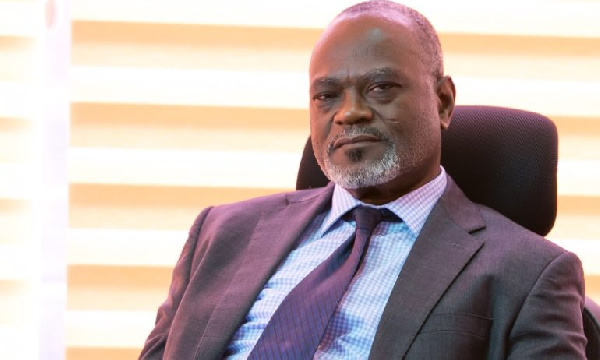
Jonas Nyabor writes: What Ghana’s youth really care about

I have been trying to gauge what people aged between 18 and 35 in Ghana cared deeply about in this country.I, therefore, set out to do a quick internet dipstick survey using google forms to find out what occupied the front pages of young people’s minds in terms of what they worried most about in Ghana.
The objective of the survey was to help draw attention to the concerns of young people whose voices on such matters hardly make it to mainstream media and barely incorporated in national development.
As it turned out, the issues that concern many young people were not very different from the everyday matters that Ghanaians generally complain about. The survey was carried out just around the time of the International Youth Day commemoration on August 12. The top outcomes from the survey highlight three key points; unemployment, limited access to education and corruption.
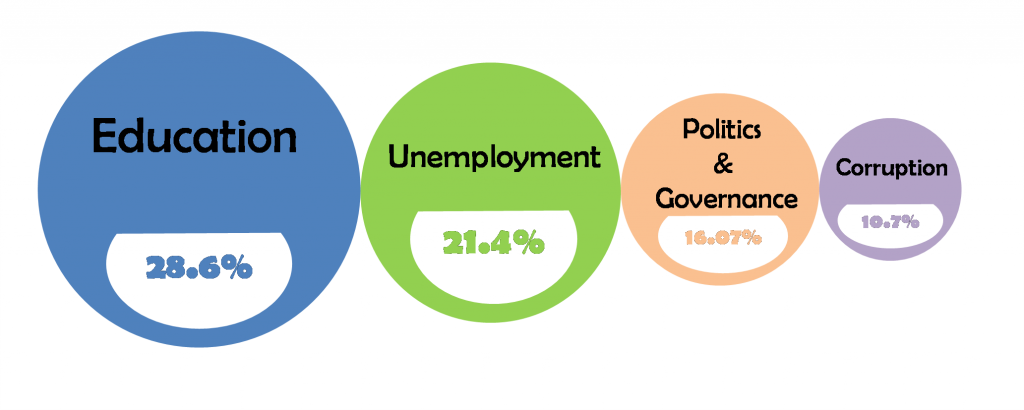
- More jobs needed
Young people, from the survey, wanted jobs and the ability of the jobs to generate income for them to be able to meet their everyday needs. It was apparent that there’s a deep concern among young people in the country about the worsening situation of unemployment.
The state of affairs it appeared to be called for an urgent apolitical approach in fixing, because, even those who’re engaged in some form of employment; permanent and temporary, according to the survey, were unable to meet the high financial demands of their unemployed relatives.
“The rate of unemployment is burdening (financially) the working few thus making things very hard for all,” one respondent said.
Unemployment remains a major problem in Ghana with majority of graduates from tertiary institutions gaining employment after three years. The Employment Minister, few days ago told the press the unemployment figure in Ghana is just about 3.7%.
According to him, “people who are actually not working and made efforts to look for work and did not obtain work summed up to 422,000. So strictly speaking these are the unemployed persons that we have on our hand,” he said.
The Minister, however, noted that an additional 417,000 people have given up looking for jobs out of frustration and lack of hope.
“I will also agree that, somebody will decide that I will not go and look for jobs at all because even if I go I will not get. So I will make no effort…Their number is 417,500. So if you add that to those who are looking for work but are not getting it, the percentage then moves [from 3.7%] to 7.1%.”
As would be expected, many have questioned the basis of this figure, with some claiming the minister did not understand the enormity of the problem.
The result from the survey was however clear, that unemployment was a major worry for young people.
- Quality education is non-negotiable
Access to quality education remains a major problem for young people. Although many government interventions have sought to generally increase access, the element of the quality of the training received, according to respondents has not been adequately addressed.
Some respondents cited “political interference” as being partly responsible for the situation, while others saw the current structure of education as an impediment to quality and relevant education.
“I’m very concerned with the way political leaders play with our educational system,” a Teaching Assistant remarked.
“All my years in school in Ghana was all theoretical which I must confess didn’t help in any way. I believe strongly that making things more practical will enhance our education system and will benefit us in the job area,” another observed.
J.A, a banker said, “this kind [educational system]does not equip the learner to be employed but rather the opposite.
A lot has been happening on the education front in the last few years. Government’s flagship Free SHS program will enter its third year this year with over one million SHS expected to get education for free. This has deepened financial access to secondary education.
There is also a curriculum reform ongoing in the basic education sector. The tertiary aspect is also set to see some changes beginning with reconstitution of their governing councils and a new admission criterion for students.
Despite the above interventions by government, the respondents think more could be done in the area of quality of training received.
- Corruption is a major threat to development
Corruption is blamed for the many shoddily done infrastructural projects scattered across the country, with many more abandoned at various levels of completion.
10.7% of millennials surveyed generally believed if there’s no corruption, there will be more prosperity for all.
Among examples cited under corrupt practices delaying the country’s development is the use of “protocol privileges” by the people in and around power to influence job placements and recruitment even in security agencies for people they are related to.
“The influence politicians have in recruitment into the various security agencies, selection into tertiary institutions and other recruitment into government organizations is very nauseating and makes some of us without links very discouraged in the system. These institutions must be independent, devoid of political influence to give opportunities to all,” D.E. Tetteh, a student in Accra said.
- They know what bad governance is
Despite the general perception that young people are indifferent towards political developments and governance, the survey showed that they could easily tell what a bad political move or undertaking is.
From abandoned hospital and school projects to streetlights that have been dysfunctional for several months, young people believe that there are many signs of bad governance in the country.
16.07% of the respondents deemed this a major issue.
“Contracts have been given out for streetlights but we see no light at night and you ask why the contract was given in the first place,” D. Kelly, a salesperson said.
There is a sense of concern among young people about the development of the country but they may not be actively involved in speaking about them publicly for reasons that include fear of losing an opportunity or service from someone in power affected by the criticisms.
From the above, one thing is clear, that, young people want more transparency in governance and improvement in the quality of education in the country. Their voices should be heard more actively than currently pertains and their views sought on interventions meant to improve their lives.
Statistics from survey
Responses:
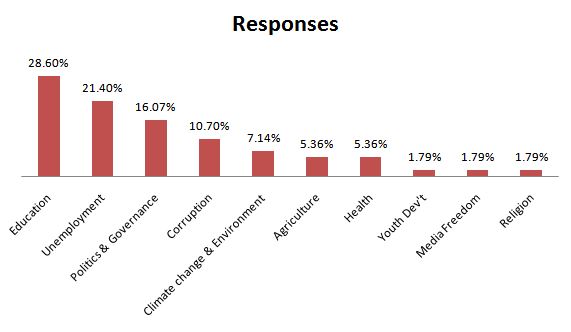
Regional distribution of respondents:
Respondents by profession:
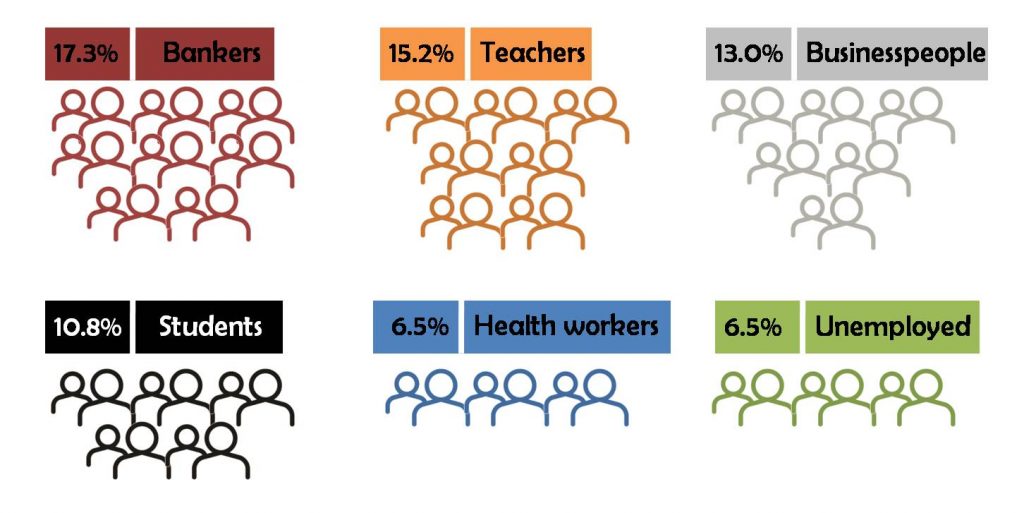
Respondents by gender
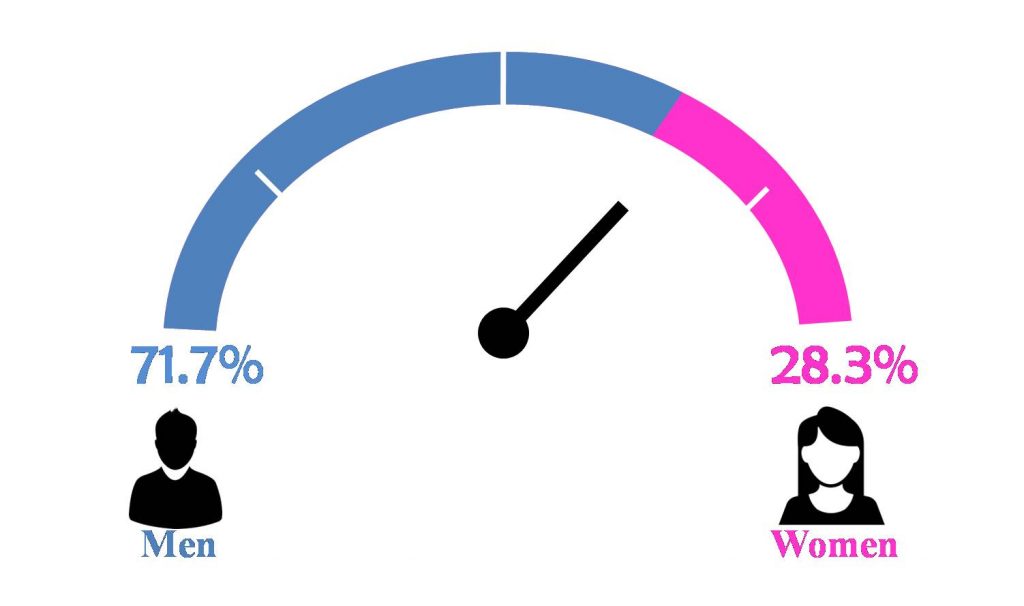
This survey was carried out by Jonas Nyabor, Farida Yusif and Audrey Maasodong and report by Jona Nyabor.
Source: citifmonline.com







